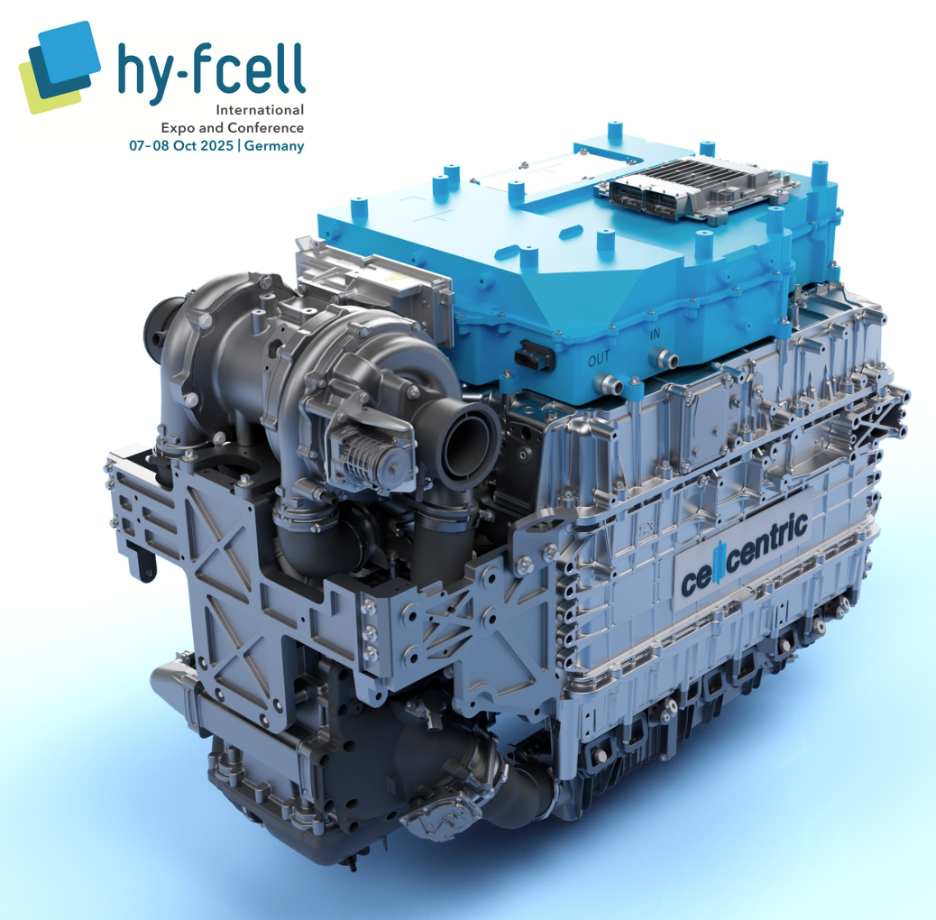
By Elke Porter | WBN News Vancouver | June 7, 2025
Subscription to WBN and being a Writer is FREE!
As the world accelerates toward decarbonization, fuel cell technology is emerging as a critical component in the transition to clean transportation. While lithium-ion batteries have dominated the electric vehicle market, fuel cells offer a compelling alternative that could revolutionize how we power cars, fleets, and buses.
Understanding Fuel Cell Technology
Fuel cells are electrochemical devices that convert hydrogen gas directly into electricity through a chemical reaction with oxygen, producing only water vapor as a byproduct. Unlike batteries that store energy, fuel cells generate electricity continuously as long as hydrogen fuel is supplied. The most common type for vehicles is the Proton Exchange Membrane Fuel Cell (PEMFC), which operates at relatively low temperatures and provides quick startup times ideal for automotive applications.
Recent technological advances have significantly improved fuel cell efficiency and durability. Modern fuel cells can achieve over 60% efficiency in converting hydrogen to electricity, compared to internal combustion engines that typically achieve only 25-30% efficiency. Fuel cell shipments grew from 86,000 to 89,200 units between 2021 and 2022, with a compound annual growth rate of around 25% since 2018, demonstrating the technology's rapid adoption.
The North American Fuel Cell Landscape
North America hosts several leading fuel cell companies, including Ballard Power Systems, Plug Power, FuelCell Energy, Bloom Energy, Cummins, and Nuvera Fuel Cells. These companies represent a mature ecosystem supporting various applications from transportation to stationary power generation. The supporting materials industry has also expanded, with companies specializing in membrane manufacturing, catalyst production, and system integration.
The global fuel cell market reached $1.04 billion in 2024 and is estimated to grow at a 7.3% compound annual growth rate through 2034, driven by increasing demand for clean energy solutions. This growth trajectory indicates a substantial industrial base supporting fuel cell development and deployment.
Advantages Over Lithium-Ion Batteries
Fuel cells offer several key advantages over traditional lithium-ion batteries. They provide longer range capability, with hydrogen vehicles typically achieving 300-400 miles per fill-up compared to many battery electric vehicles' more limited range. Refueling takes just 3-5 minutes, similar to gasoline vehicles, while battery charging can take 30 minutes to several hours.
For heavy-duty applications like buses and freight trucks, fuel cells excel due to their superior power-to-weight ratio. They maintain consistent performance in extreme temperatures where batteries often struggle, making them ideal for cold climates and demanding industrial applications. Additionally, fuel cells don't degrade with cycling like batteries, potentially offering longer operational lifespans.
Educational Infrastructure and Workforce Development
Educational institutions are rapidly adapting to prepare the workforce for the hydrogen economy. BCIT hosted its first annual Hydrogen Symposium in March 2024, bringing together academia, government, and industry to discuss initiatives advancing the hydrogen industry, with a focus on "Powering the Future BC Workforce". BCIT's School of Energy provides hands-on training focusing on increasing energy efficiencies and developing cost-effective alternative energy sources.
Universities across North America are integrating fuel cell technology into their curricula, offering specialized programs in hydrogen engineering, fuel cell design, and clean energy systems. These programs combine theoretical knowledge with practical laboratory experience, ensuring graduates are prepared for careers in this emerging field.
The Path to Mainstream Adoption
For fuel cells to achieve mainstream success, several challenges must be addressed. Infrastructure development remains critical, as hydrogen refueling stations are still limited compared to gasoline stations or electric charging networks. Cost reduction through manufacturing scale-up and technological improvements is essential to compete with conventional vehicles.
The industry must also establish reliable hydrogen supply chains, preferably using renewable energy sources for hydrogen production to maximize environmental benefits. Standardization of components and systems will help reduce costs and improve interoperability across different manufacturers.
A Hydrogen-Powered Future
The future of fuel cells appears increasingly bright as governments worldwide implement supportive policies and companies invest heavily in the technology. China leads in fuel cell trucks and buses, shipping nearly 3,800 fuel cells, while passenger car applications are dominated by Hyundai and Toyota with 15,000 units, indicating growing global adoption.
As production scales increase and costs decrease, fuel cells are positioned to complement battery electric vehicles, particularly in applications requiring long range, quick refueling, or heavy-duty performance. The technology represents a crucial pathway toward achieving zero-emission transportation across all vehicle segments.
Five Fuel Cell Companies to Consider Visiting in the Lower Mainland
Many of these companies were recently showcased at the Hy-FCell Conference & Expo held at the Vancouver Convention Centre from June 3-5, 2025, demonstrating the region's leadership in hydrogen technology.
- Ballard Power Systems (Burnaby, BC) - A pioneer in PEM fuel cell technology with extensive automotive and transit applications
- cellcentric (Burnaby, BC) - Joint venture between Daimler Truck and Volvo Group focusing on fuel cell systems for heavy-duty commercial vehicles
- Hydrogen In Motion (Lower Mainland, BC) - Specializes in hydrogen fuel cell solutions and infrastructure development
- Loop Energy (Burnaby, BC) - Develops fuel cell electric range extenders and integrated fuel cell systems
- PowerTap Hydrogen Capital (Vancouver, BC) - Focuses on hydrogen production and refueling infrastructure
The convergence of technological advancement, environmental necessity, and economic opportunity positions fuel cells as a transformative technology for the next decade of transportation evolution.
#Fuel Cells #Green Hydrogen #Vancouver Tech #Hy FCell 2025 #Clean Transportation #Hydrogen Economy #WBN News Vancouver #Elke Porter
Connect with Elke at Westcoast German Media or on LinkedIn: Elke Porter or contact her on WhatsApp: +1 604 828 8788


